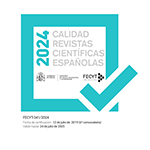Pier Paolo Pasolini: Vile mothers engender bourgeois society
Abstract
La ballata delle madri is one of the most provocative poems in the anthology Poesía in forma de rosa. Through the language of rage as well as the use of devastating metaphors, the “idyllic” representation of family is utterly destroyed: the fathers are absent, the brothers are fratricide and the mothers, “vile, mediocre, servile, ferocious”, are blamed for the origin of bourgeois society and all its evils. Pasolini moves between two opposing scenarios, one mythic and matriarchal, the other modern and patriarchal, which are embodied by the poet’s mother and the vile mothers of his coetaneous. The relentless contrast between the “I” of the poet and the “we” of his interlocutors-detractors-enemies is deciphered in the myth of diversity, related to its sacred origin. Pasolini feels heir to Mother Earth, still not domesticated by bourgeois society, who also incarnates the bare instinct, the spirit, and the archaic force, charged with “a desperate vitality”. The feminine is represented by a double prism: social and anti-social, subordinated and subversive, frenzied and idealized, and as a the foundation of difference and dissidence. Thus, the feminine becomes a sign of its personal and cultural identity while, at the same time, it is degraded and demonized as a symbol of compliance and submission to the bourgeois capital system.Downloads
Article download
License
In order to support the global exchange of knowledge, the journal Cuadernos de Filología Italiana is allowing unrestricted access to its content as from its publication in this electronic edition, and as such it is an open-access journal. The originals published in this journal are the property of the Complutense University of Madrid and any reproduction thereof in full or in part must cite the source. All content is distributed under a Creative Commons Attribution 4.0 use and distribution licence (CC BY 4.0). This circumstance must be expressly stated in these terms where necessary. You can view the summary and the complete legal text of the licence.










